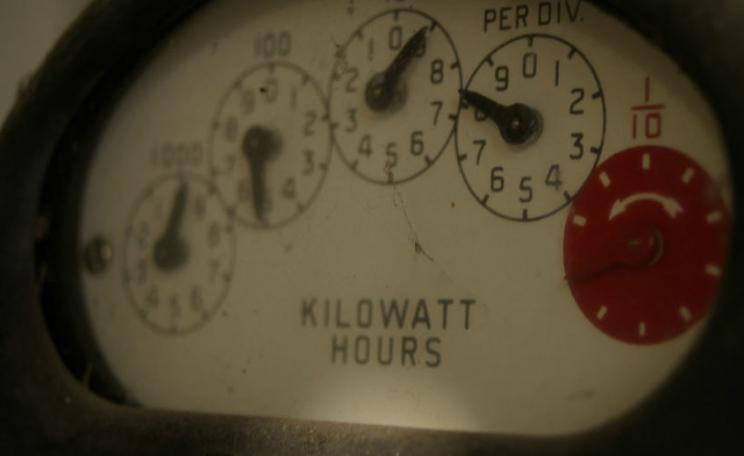Confidence in the government’s energy efficiency policy at an all-time low.
Environmental regulations for businesses have come to a standstill lately. There’s not been much emphasis on environmental issues during the election campaigns, and even the current administration is likely to abolish its much-lauded Carbon Reduction scheme for businesses.
So where does that leave us? There are still European Union targets to reduce carbon emissions, but that’s likely to disappear as Brexit comes to closure. It might simply be a case of us business owners doing it ourselves if the government isn’t driving the agenda forward.
Starting out small
The good news is that the majority of businesses are investing more in energy efficiency schemes, perhaps ignoring their pricing commitments at the same time, but the emphasis is good to hear. This quiet revolution has largely gone unnoticed, with confidence in the government’s energy efficiency policy at an all-time low.
Most businesses tackle the “low-hanging fruit,” such as replacing legacy lighting systems with high-efficiency equivalents, while the more adventurous invest in energy management systems, temperature controls and renewable energy technologies.
The payback on most projects is steady, despite the costs of implementing such projects falling as technologies and demand improve. The most common schemes still focus on high-efficiency lighting and control projects.
Although fewer companies are reporting commissioning these—as many have already completed the transition—it’s one of the easiest, quickest and most cost-effective changes a business can make.
Confidence in the government’s energy efficiency policy at an all-time low.
Depending on your circumstances, this simple switch could have a dramatic reduction on your electricity bill while reducing your company’s carbon footprint.
Why companies wait to change
The organisations that invest in environmental change do it for many reasons. However, there’s a real financial impact on their bottom line from reducing their costs.
In addition, the environmental benefits, especially for large consumers of energy, cannot be ignored. So why are some businesses behind others in this area? The top five reasons are: other priorities elsewhere in the business; lack of affordable financing; limited buy-in from senior management; lack of resources and andlord-owned buildings that don’t allow changes.
Nearly 50 percent of companies surveyed highlighted the first issue. It’s always difficult to make time for a new project that doesn’t necessarily affect a business growth plan. However, well-managed energy efficiency projects always improve profits.
Some suppliers and customers are even inquiring about the environmental policies of the businesses they frequent because they want to deal with like-minded organisations. It’s something that all businesses will have to manage at some point in their development.
Financing and resources are also a difficult juggling act. The initial investment can be excessive and pay-back periods long. There are limited funds available for businesses from the Green Business Fund, managed by The Carbon Trust (TCT), that could be available. TCT also helps with training, finding reputable suppliers and offer workshops for your employees to identify saving opportunities.
Energy-efficient behaviours in the workplace
Even the best energy-saving plans can be disrupted by people. You can install LED light bulbs and pre-program the thermostat, but employees may still leave the lights on or turn up the heat when it’s unnecessary, eroding all the good work you’ve undertaken.
That’s why clear and consistent workplace policies backed up by senior management are so important. It’s only when your senior management drives change—and shows that they mean business—that behaviour begins to match expectations.
You can hire outsourcing companies that work with you to drive the agenda forward, so you don’t need to find additional resources internally. Alternatively, hiring someone in-house, or assigning projects to existing staff, can produce similar results if they have adequate training and full senior management support.
Don’t make the mistake of giving the responsibilities to someone who won’t have the time to devote to this area, because it’s likely that nothing will be achieved.
Whoever is in charge, they should produce a full communications and project plan spanning at least one year detailing the changes required. Money talks, so carbon and consumption reductions could be introduced to the company’s bonus scheme to sharpen people’s focus.
Behaviour change in action
Some companies look to attain ISO 50001 energy standard accreditation through training initiatives. In conjunction with their external provider, Bristol Water implemented company-wide training that has a potential annual saving of £225,000 from their initiatives.
Many other companies saw reductions in energy costs from implementing ISO 50001. Morgan Lovell achieved a 30 percent saving in electricity costs, Viridor has set a 20 percent gain in energy efficiency, Sheffield University reduced carbon emissions by 11 percent and Camfil Farr reduced energy consumption by £200,000 over two years.
Let’s not forget unit energy prices
While more companies tackle green issues than their pricing contracts, the largest return on investment a business can make with the least amount of effort is finding the lowest unit energy costs each year.
If you leave your contract to lapse, your supplier is likely to increase your gas and electricity prices by 40 percent, and up to 100 percent in some circumstances.
Taking the time to either discuss your contract with one of the many accredited energy brokers or use a B2B comparison site could significantly reduce your prices each year.
Wholesale energy prices have remained fairly flat over the past six years, and competition is fierce amongst suppliers in the non-residential market. Spend five minutes each year to complement your efficiency measures with renewed focus on your invoice.
Summary of Key Actions
The majority of business have already implemented some form of energy efficiency programme. If you haven’t started yet, start researching today.
Most barriers to beginning a programme can be overcome.
Corporate change through communication and training almost always provides valuable returns in reducing carbon and lowering energy bills.
Companies should check to make sure they’re on the cheapest tariff each year.
This Author
Jason Smith is an energy expert who has helped businesses increase their energy efficiency for more 10 years. He manages the website Business Electricity Prices, which advises small and medium sized businesses on reducing their utility bills.




